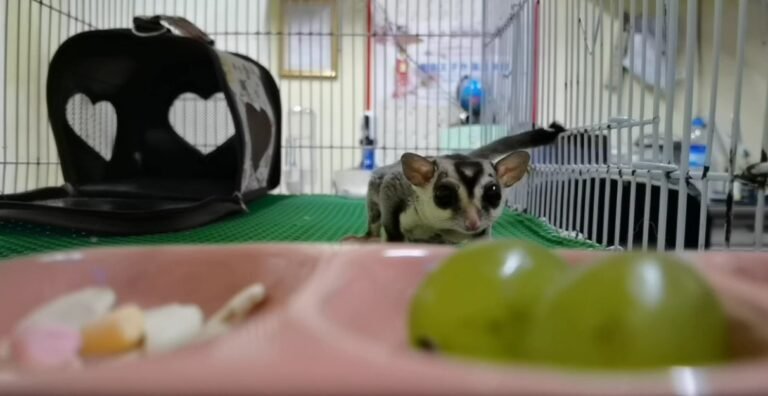Can Sugar Gliders Eat Dates
Can Sugar Gliders Eat Dates?
If you’re a sugar glider owner, you might be wondering about the dietary requirements of these adorable creatures. One common question is whether or not sugar gliders can eat dates. In this article, we’ll explore the nutritional value of dates, whether they are safe for sugar gliders to consume, and how to incorporate them into their diet, if at all.
Nutritional Value of Dates
Dates are a type of sweet fruit that comes from the date palm tree. They are known for their high sugar content and are often enjoyed as a natural sweetener or a healthy snack. While dates are a rich source of energy and contain several essential nutrients, it’s important to consider whether these nutritional benefits apply to sugar gliders as well.
Dates consist primarily of carbohydrates, with around 64 grams of sugar per 100 grams of fruit. They also contain some dietary fiber, providing approximately 7 grams per 100 grams of dates. Additionally, dates contain small amounts of vitamins and minerals such as potassium, magnesium, and vitamin B6.

Can Sugar Gliders Eat Dates?
While dates contain some beneficial nutrients, it’s crucial to understand whether they are safe and suitable for sugar gliders. Sugar gliders have specific dietary needs, and their diet should consist mainly of a balanced mix of fruits, vegetables, proteins, and supplements.
While some fruits can be offered to sugar gliders in moderation, it’s generally recommended to avoid feeding them dates. The high sugar content in dates can be harmful to sugar gliders and may lead to obesity, dental issues, or digestive problems. Sugar gliders should primarily consume fruits with lower sugar content and higher nutritional value.
Alternatives to Dates for Sugar Gliders
To ensure that your sugar glider maintains a healthy and balanced diet, there are several alternatives to dates that you can consider. Some suitable fruits for sugar gliders include:
1. Apples: Apples are a popular choice among sugar gliders. They are low in sugar and provide essential vitamins and fiber.
2. Blueberries: Blueberries are packed with antioxidants and provide a variety of vitamins and minerals.
3. Papaya: Papaya is known for its digestive properties and can be a healthy addition to a sugar glider’s diet.
4. Grapes: Grapes are another option, but should be fed in moderation due to their higher sugar content.
It’s important to remember that any new addition to your sugar glider’s diet should be introduced gradually and in small quantities. Observing your glider’s response and consulting a veterinarian with expertise in sugar glider care is always advisable.
Frequently Asked Questions
Q: Can sugar gliders eat dates occasionally?
A: While it’s best to avoid feeding dates to sugar gliders due to their high sugar content, offering a tiny piece as an occasional treat may not cause immediate harm. However, a more balanced and nutritious diet should be the priority.
Q: Are there any health risks associated with feeding dates to sugar gliders?
A: Yes, the high sugar content in dates can lead to various health issues for sugar gliders, including obesity, dental problems, and digestive disturbances. It’s essential to prioritize a well-balanced diet that meets their nutritional needs.
Q: What are the signs of sugar glider dietary issues?
A: Some signs of dietary issues in sugar gliders include obesity, tooth decay, diarrhea, and a decline in overall health. If you notice any of these symptoms, it’s crucial to consult a veterinarian familiar with sugar glider care.
Final Thoughts
While dates might be a delicious and nutritious treat for humans, they are not recommended as a regular part of a sugar glider’s diet. The high sugar content in dates can lead to health problems in these small marsupials. Instead, opt for fruits with lower sugar content and higher nutritional value to ensure your sugar glider stays healthy and happy.
Remember, a sugar glider’s well-being depends on a balanced and diverse diet, supplemented with other foods such as vegetables, proteins, and appropriate supplements. Prioritize their nutritional needs and consult with a veterinarian for guidance on providing the best diet for your sugar glider.







